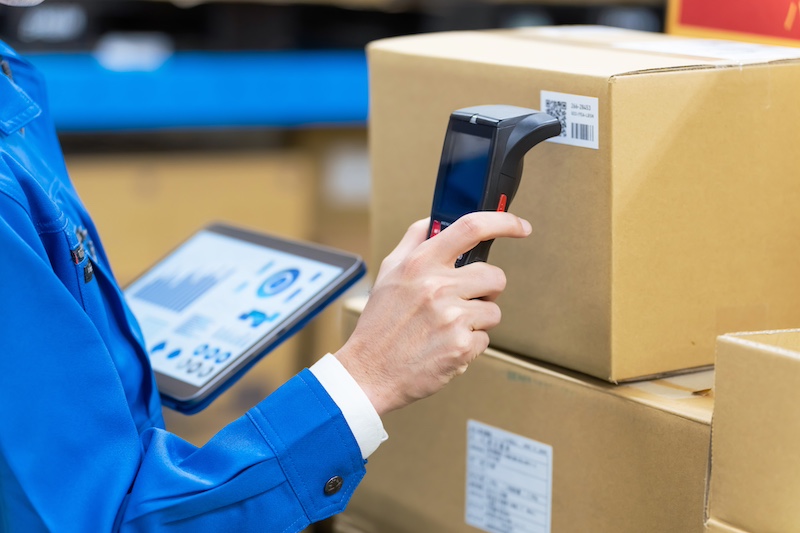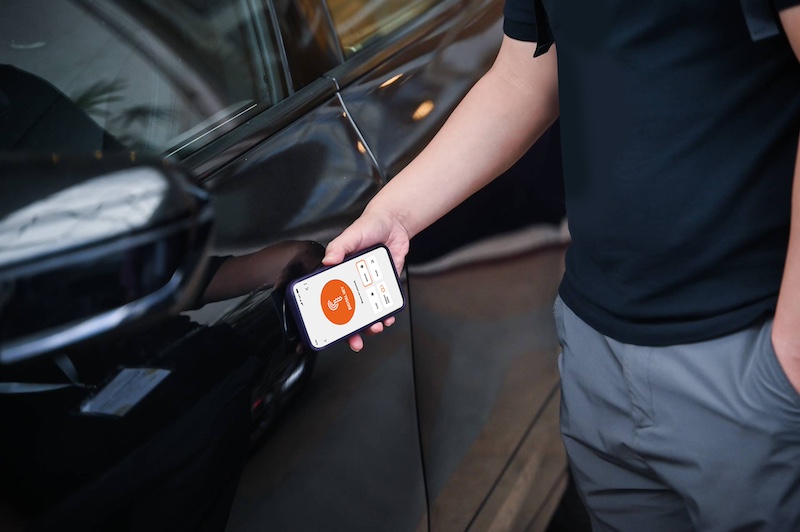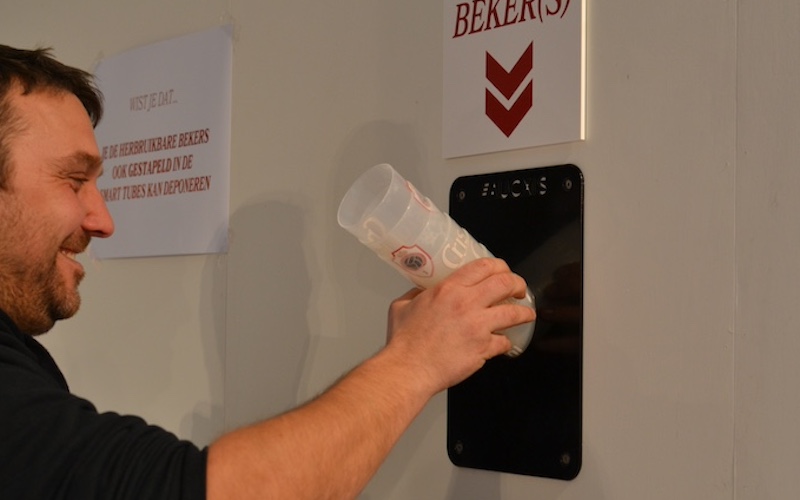Consortium to Expand RFID-based, Self-Driving Stores
Common use of autonomous driving stores are a step closer to reality as the technology companies behind the self-driving retail concept have formed a collective.
Store hailing company Robomart, founded the ecosystem of industry-leading partners that intends to advance the development and proliferation of self-driving shops. The Autonomous Retail Collective (ARC)—focused on store-hailing and checkout-free self-driving shops —includes Whale Dynamic (WD) as the software enabler of autonomous driving systems, Avery Dennison Smartrac for the supply of RFID technology and expertise, Zeeba for fleet management services, and PIX Moving for custom autonomous vehicle manufacturing and mass production.
Together, the companies intend to create a comprehensive solution for deploying and operating autonomous retail fleets at scale, said Ali Ahmed, Robomart’s co-founder and CEO. The collective intends to include other ecosystem partners as the platform scales, as well.
100 New Retail Vehicles in the Works
Additionally, Robomart and WD have signed a strategic partnership to integrate WD's self-driving technology into up to 100 mobile retail vehicles as part of Robomart's fleet.
Robomart’s retail customers currently feature Mars, Ben & Jerry's, Fatty Mart, Rainbow Foods and Art’s Specialties. These self-driving stores are intended to enable customers to use an app to hail the store.
Once the Robomart arrives, shoppers can unlock the doors with the app, select their desired products, and simply walk away without the need to checkout. They are then charged automatically, all without driving to a store, or placing orders online.
According to Ahmed, consumers can summon a Robomart to their location in under ten minutes using the proprietary app.
RFID Tracks Products
RFID enables much of the process by capturing each transaction and then enabling order calculation based on who accessed the store and what was removed. Each product has a passive UHF RFID tag attached to it, that links to details about that product in Robomart’s software. Reader and antennas built into the vehicle store shelves then track each tag by interrogating it at regular intervals.
When the store arrives at the point where it was hailed, and tagged products—such as a carton of ice cream—are removed, the tags are no longer read by the store antennas. The software then automatically links those goods with the shopper.
A System Three Years in Development
Robomart, launched in California in 2021, partnered with an early adopter brand to offer two types of mobile sales solutions: Snacks Robomart and Pharmacy Robomart.
Following that, a company testing the technology indicated, based on piloting of the self-driven stores, they gained 90 percent repeat buyers and 2.3 orders per week across active buyers. Those statistics average higher than online shoppers or shopping rates in physical stores.
“That’s a testament to this new model of store hailing, and how convenient it is. It is literally the cheapest fastest and most convenient way to get goods,” said Ahmed. The low cost for retailers is based on the ability to sell products without requiring a store front.
The typical error rate for RFID tag reading is about one percent, typically resulting from errors in tagging, according to Robomart officials.
In most cases, companies brand their app so that shoppers use that product or seller’s app to hail the store. Thus far, while ice cream has been the most popular, a few other retailers are deploying or piloting the system include a quick service restaurant, cafe and a convenience store operator in southern California and Boston areas.
Accelerating Self-driving Stores as a Retail Sector
As for the collective, it will serve as an accelerator for self-driving stores, Ahmed predicted.
“We're creating a new category (for retail) and instead of one company coming out and saying ‘hey we're building store hailing,’ there is an entire ecosystem advancing self-driving shops as a category,” he said.
Existing systems related to food delivery often consist of mobile retail, in which case a mobile store is parked in a fixed area such as a university campus, hospital or stadium.
Uber recently announced expansion of its autonomous delivery. In that model, shoppers pre-order goods by creating a shopping basket in the app, and the selected items are then picked and delivered. The entire time to build a virtual basket, have the items packed and then delivered, can be relatively lengthy.
Ahmed argues the RFID-based auto-checkout system from Robomart is faster and allows shoppers to physically select the products they want, by bringing the entire inventory of goods to their site and tracking their selection in real time.
“With the use of RFID, the whole process is frictionless. You can hail a shop in under 10 minutes and grab what you want and go,” he said. “You literally tap one button throughout the whole process, and there’s no scanning of items or your card.”
ARC Disruption
Members of the ARC consortium indicate that the store-hailing application is going to change how people get certain goods, although the model is specific to certain applications based on convenience items rather than large scale purchasing such as grocery shopping.
Avery Dennison’s technology offers frictionless customer checkout for ease and speed for both the customer and for Robomart, said Susan Flake, Avery Dennison’s Global BD director, food identification solutions.
“The opportunity to serve on the ARC Collective allows us to be at the forefront of solutions that are next generation, enabling an unparalleled enhanced customer experience, labor efficiencies, and inventory visibility,” she said.
-

PacSun to Expand RFID Pilot This Summer
Executive extolls success of program in more accurate inventory count
More efficient antennae have turned the used of RFID turning it into a “game changer”2024-06-04
-

CCC Companies Building Standardized NFC Car Access
The Digital Key standard includes near-field communications (NFC) that allows car companies to offer a short-range solution for phone-to-car communication
NFC is among technologies that can be detected wirelessly, by a car’s locking system when an authorized smartphone is in the vicinity.2024-06-04
-

Royal Antwerp FC Scores Reusable Cup Solution with RFID
The Belgian-based football team needed to meet a sustainability directive from the European Union related to eliminating single-use plastic cups.
The solution known as STAR, from Aucxis, has reduced queueing time for football fans, reduced labor at the bar and eliminating cup waste.2024-06-04
-

Using RFID, JSW Steel Cuts Truck Dwell Times at Factories
The RFID and AI solution from Kemar Automation enables JSW Steel to track the status of the trucks that enter and leave its facility at each step in the loading, unloading and weighing process.
The company can use the system to better plan its dispatching and other operations.2024-06-04










